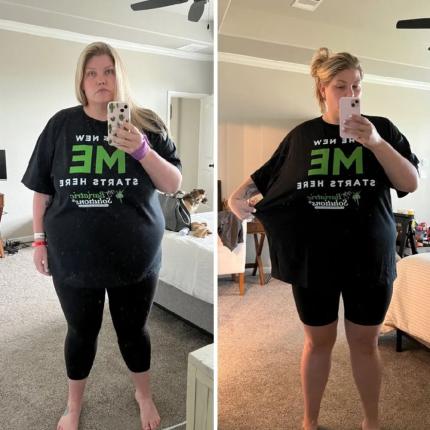Before & After Gastric Bypass in Turkey | Bridge Health Travel
Calculate Your Cost / Price
Before & After Gastric Bypass in Turkey | Bridge Health Travel
Before the gastric balloon is placed in the stomach, the patient undergoes a detailed evaluation by expert doctors. The patient's general health condition is examined, and any other stomach-related health problems are assessed through endoscopic imaging techniques. If any other health problems such as reflux, gastritis, or ulcers are detected during this examination, the existing health issue is treated first. Afterward, the gastric balloon can be placed. During the gastric balloon placement procedure, general anesthesia is not required.
Gastric Sleeve Turkey, Mini Gastric Bypass Turkey, Gastric Bypass Turkey, Gastric Balloon Turkey, Scarless Gastric Sleeve Surgery Turkey, Gastric Surgery Turkey, Gastric Sleeve Antalya, Mini Gastric Bypass Antalya, Gastric Bypass Antalya, Gastric Balloon Antalya, Scarless Gastric Sleeve Surgery Antalya, Gastric Surgery Antalya, Gastric Sleeve in Antalya, Gastric Sleeve Price Antalya, Allurion Swallowable Gastric Balloon in Antalya, Gastric Sleeve in Turkey, Gastric Sleeve Price Turkey, Mini Gastric Bypass in Antalya, Mini Gastric Bypass in Turkey, Gastric Balloon Treatment Antalya, Gastric Balloon Treatment Turkey, Gastric Balloon Procedure All Inclusive in Turkey, Aesthetic Travel Antalya, Gastric Sleeve Travel Antalya, Gastric Balloon Travel Antalya, Gastric Bypass Travel Antalya, Aesthetic Travel Turkey, Gastric Sleeve Travel Turkey, Gastric Balloon Travel Turkey, Gastric Bypass Travel Turkey, Gastric Balloon in Antalya, Gastric Balloon in Turkey, Obesity Travel Antalya, Obesity Travel Turkey
Gastric Sleeve Turkey, Mini Gastric Bypass Turkey, Gastric Bypass Turkey, Gastric Balloon Turkey, Scarless Gastric Sleeve Surgery Turkey, Gastric Surgery Turkey, Gastric Sleeve Antalya, Mini Gastric Bypass Antalya, Gastric Bypass Antalya, Gastric Balloon Antalya, Scarless Gastric Sleeve Surgery Antalya, Gastric Surgery Antalya, Gastric Sleeve in Antalya, Gastric Sleeve Price Antalya, Allurion Swallowable Gastric Balloon in Antalya, Gastric Sleeve in Turkey, Gastric Sleeve Price Turkey, Mini Gastric Bypass in Antalya, Mini Gastric Bypass in Turkey, Gastric Balloon Treatment Antalya, Gastric Balloon Treatment Turkey, Gastric Balloon Procedure All Inclusive in Turkey, Aesthetic Travel Antalya, Gastric Sleeve Travel Antalya, Gastric Balloon Travel Antalya, Gastric Bypass Travel Antalya, Aesthetic Travel Turkey, Gastric Sleeve Travel Turkey, Gastric Balloon Travel Turkey, Gastric Bypass Travel Turkey, Gastric Balloon in Antalya, Gastric Balloon in Turkey, Obesity Travel Antalya, Obesity Travel Turkey
FQ About Gastric Balloon Clinic in Antalya / Turkey
7 to 10 days - The required time for a gastric sleeve in Turkey is usually seven to 10 days. On the first day, you meet our doctor for consultation and the blood test, the second day, you will be for the procedure, stay at the hospital for 2 or 3 nights, and after seven days from the operation, you need to have control.
WLS stands for Weight Loss Surgery, and bariatric surgery is a broad term that includes procedures like gastric bypass, sleeve gastrectomy, and adjustable gastric banding. Bariatric surgery is performed to treat morbid obesity when lifestyle changes alone have failed to produce significant weight loss. It leads to long-term weight loss and improvement in health conditions like diabetes and heart disease.
Weight management involves long-term strategies to maintain a healthy weight, including diet, exercise, behavioral changes, and sometimes medical interventions like surgery or medication. A well-rounded weight management plan focuses on sustainable habits rather than quick fixes, emphasizing portion control, balanced nutrition, and physical activity.
A sleeve diet plan involves gradual dietary progression after surgery, focusing on protein-rich foods, minimal carbohydrates, and small portion sizes. Long-term, patients must continue eating nutrient-dense, low-calorie meals to maintain weight loss. Key components include lean meats, vegetables, whole grains, and avoiding sugary and fatty foods.
A private gastric band surgery offers shorter waiting times compared to the NHS, but it comes at a cost. In the UK, private clinics charge between £1,450 and £8,000 for the surgery, with additional fees for follow-up appointments and band adjustments.
Endoscopic Sleeve Gastroplasty (ESG) is a non-surgical weight-loss procedure where a gastroenterologist uses an endoscope to stitch the stomach into a smaller size, reducing its capacity. Unlike traditional bariatric surgery, ESG is performed through the mouth and doesnt involve cutting or removing any part of the stomach. Recovery is quicker, and the procedure is reversible, but the weight loss achieved is typically less significant than with RNY or gastric sleeve surgery.
When the stomach is taken out through a procedure like gastrectomy, the patient must adapt to a new lifestyle that involves eating smaller, more frequent meals and relying on supplements for essential nutrients. This surgery is performed to treat conditions like stomach cancer, ulcers, or severe obesity.
The gastric balloon is a temporary, non-surgical weight-loss option in which a balloon is placed in the stomach and inflated. It reduces stomach capacity, helping patients feel full on smaller meals. This procedure is ideal for those who need assistance with weight loss but are not ready for permanent bariatric surgery.
A pre-surgery diet prepares the body for bariatric surgery, typically focusing on reducing liver size and overall fat to make the procedure safer. This high-protein, low-carbohydrate diet often lasts for 1-2 weeks before surgery. Patients must follow a strict plan of liquids and protein shakes to shrink the liver and facilitate surgery.
A non-surgical sleeve refers to procedures that mimic the effects of sleeve gastrectomy but without surgery. One such method is the Endoscopic Sleeve Gastroplasty (ESG), which reduces stomach size using sutures inserted through an endoscope. This approach is less invasive, has a faster recovery time, and is typically used for patients who do not qualify for surgical interventions.
Similar to a GI doctor, a "gastro dr" refers to a specialist in gastroenterology. Patients typically see these specialists for issues related to digestive health, such as ulcers, acid reflux, or liver disease. They perform diagnostic procedures like endoscopies or colonoscopies to identify and treat conditions. For bariatric surgery patients, gastroenterologists can help manage complications that arise from surgeries like the Roux-en-Y or gastric band.











